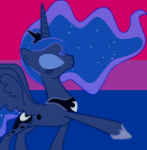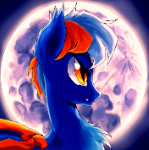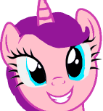"Princess" in the context of MLP vs. "Princess" when referenced elsewhere
-
Similar Content
-
- 45 replies
- 2,449 views
-
- 51 replies
- 6,906 views
-
What's a lyric that sounds bad taken out of context?
By Enmosia Curvata,
- lyrics
- out of context
- (and 1 more)
- 2 replies
- 164 views
-
- 6,175 replies
- 310,714 views
-
- 5 replies
- 564 views
-
-
Recently Browsing 0 members
- No registered users viewing this page.







Recommended Posts
Create an account or sign in to comment
You need to be a member in order to leave a comment
Create an account
Sign up for a new account in our community. It's easy!
Join the herd!Sign in
Already have an account? Sign in here.
Sign In Now